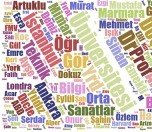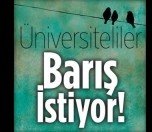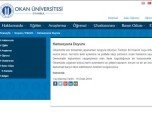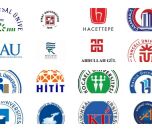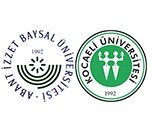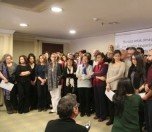Click here to read the article in Turkish / Haberin Türkçesi için buraya tıklayın
I have studied women's movements and women's rights activism in the region for the past 20 years as an anthropologist and gender studies expert. Throughout my research I have come across amazing feminist activists and scholars who courageously struggle for equality and social justice. But what I have learnt about and from the Kurdish women's movement in Turkey has been particularly impressive and moving. There is something very special and precious happening with the Kurdish political movement's recognition of the centrality of gender equality for wider struggles of democracy, justice and human rights. Knowing how special and precious this development is, I have felt it is extremely painful and tragic to see how the Kurdish women's movement and the wider political movement is under attack as part of the Turkish state's ongoing onslaught against Kurds.
I grew up in Germany where I learnt very early on that following government orders, blind obedience and silence might actually mean complicity in crime and can lead to terrible atrocities. Very early on I learnt that it was important to develop an independent moral compass and to follow ethical principles rooted in the respect for human dignity rather than the rules of an authoritarian regime. So I was very happy and moved to see that over a thousand Turkish academics were courageous enough to sign a petition in order to distance themselves from the atrocities and crimes against the Kurdish population, particularly in south eastern Turkey.
Historically, it has been the role of intellectuals, educators and researchers to speak truth to power and not to be silent when injustice happens. Academic freedom has been integral to the development of the social sciences and the humanities historically and globally. Whenever academic freedom has been under attack - such as in Germany under Hitler, or in Iraq under Saddam Hussein, where I have family, friends and colleagues as well - we know that a country is in big trouble: the attack on academic freedom means that a regime is failing to convince its thinkers with rational arguments but needs to use coercive measures to maintain control. However, while doing so, a regime loses legitimacy, respect and credibility, not only in the eyes of its own critical and thoughtful population, but also in the eyes of the global mass of people believing in democracy, justice and human rights.
I am a member of the Middle East Studies Association of North America (MESA), the largest academic association of Middle East Scholars, including many scholars from Turkey, the Middle East as well as the US, Canada and European countries. MESA has just issued a letter stressing its solidarity and support with Turkish academics. The letter states:
"As a member state of the Council of Europe and a signatory of the European Convention for the Protection of Human Rights and Fundamental Freedoms, Turkey is required to protect freedom of thought, expression and assembly. Turkey is also a signatory to the Universal Declaration of Human Rights, the International Covenant on Civil and Political Rights, and the Final Act of the Conference on Security and Cooperation in Europe (OSCE), all of which protect the rights to freedom of expression and association, which are at the heart of academic freedom. These rights are also enshrined in articles 25-27 of the Turkish Constitution."
By violating academic freedom, and by intimidating, attacking and threatening academics at Turkish universities, the Turkish government is not only violating international law and its own constitution, but it is showing how weak it is. Only a weak and insecure state needs to resort to these repressive and punitive measures. A strong, confident and credible government could engage in dialogue and try to convince its population by engaging in policies and actions that reveal that it genuinely cares for the well-being of its population instead of its own grasp on power.
One small positive outcome in the midst of the growing tragedy and almost absurd developments is the fact that more and more people all over the globe - academics, intellectuals, journalists, politicians, artists and ordinary people - have started to realise that the current path of the Turkish government diverges radically from the path of a peaceful, democratic and respectable country. All over the globe academics are finding out about what is happening to their colleagues in Turkey, and, at the same time, they are also learning about the underlying reason why academics are targeted and under attack: because they stood up to protest against the government's violence and war against Kurds. They want the government to engage in politics, speak and try to make peace and not to kill Kurdish women, men and children. I have never seen such a rapid and widespread mobilisation of academics of all disciplines, backgrounds in many different countries around the world. This is partly an expression of solidarity, partly an expression of protest against the Turkish government's attack on Kurds and its hypocrisy towards ISIS, but it is also because of the recognition that an attack on academics in one country is an attack against all of us.
Who is Nadje Al-AliNadje Al-Ali is Professor of Gender Studies at the Centre for Gender Studies, SOAS, University of London. She has published widely on women and gender in the Middle East as well as transnational migration and diaspora mobilization. Her publications include What kind of Liberation? Women and the Occupation of Iraq (2009, University of California Press, co-authored with Nicola Pratt); Women and War in the Middle East: Transnational Perspectives (Zed Books, 2009, co-edited with Nicola Pratt); Iraqi Women: Untold Stories from 1948 to the Present (2007, Zed Books) and Secularism, Gender and the State in the Middle East (Cambridge University Press 2000). Her most recent book (co-edited with Deborah al-Najjar) entitled We are Iraqis: Aesthetics & Politics in a Time of War (Syracuse University Press) won the 2014 Arab-American book prize for non-fiction. Professor Al-Ali is a member of the Feminist Review Collective. |






132.jpg)
